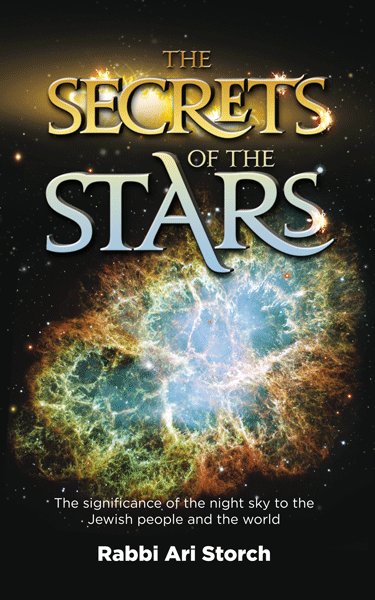Most people are familiar with the fact that this Shabbos is referred to as Shabbos HaGadol. The common reason given for this title is that on the Shabbos prior to the first Pesach, the Exodus, Klal Yisrael took sheep, an Egyptian god, to be their Pesachim and the Egyptians did not harm them. This miraculous event is recognized by commemorating the Shabbos prior to Pesach as Shabbos HaGadol. (see Shulchan Aruch O.C. 430 and Mishna Berurah) The problem is that this does not seem to work out historically.
Seder Olam, a Baraisa written by Rebbi Yose the Tanna and cited throughout Shas, mentions that the fifteenth of Nisan in the year of the Exodus was a Friday. If so, then the tenth of Nisan, the day Klal Yisrael took their sheep, would have to be a Sunday. Shouldn't we then be celebrating Sunday HaGadol, then, instead of Shabbos HaGadol (or at least discard this reason to call this Shabbos "Shabbos HaGadol")?
The answer, perhaps, creates a more intriguing enigma then the one presented above. The Gemara in Shabbos (87b-88a) presents a machlokes in which the Rabbanan maintain that the fifteenth of that year was on a Friday and Rebbi Yose maintains that it was on a Thursday. If we follow Rebbi Yose's opinion, then our acceptance of this reason fpr Shabbos HaGadol makes sense. According to him the day Klal Yisrael took their sheep was Shabbos. The halachic practice is to follow Rebbi Yose's opinion regarding the halachic dispute that resulted from the historical record in Miseches Shabbos. Therefore, it stands to reason that we should be of his opinion. In addition, we generally follow Rebbi Yose's opinion in all disputes. (see Eruvin 46b)
(Parenthetically, Rebbi Yose's version of history has Matan Torah on 7 Sivan not 6. The Magen Avraham, and many other authorities have delved into this issue as it relates to our calling Shavuos, 6 Sivan, "Zman Matan Toraseinu.")
The question that one should ask now is, "Why did Rebbi Yose use the Rabbanan's date in his book, Seder Olam?" In fact, the Gemara in Shabbos quotes this Seder Olam by name and contends that Rebbi Yose does not see it as problematic to his personal opinion because he maintains that it reflects the Rabbanan's opinion. While we do find Rebbi Yose using other opinions in his Seder Olam (see Niddah 46b), they usually are halchically oriented and not focussed on the historical record. Since Seder Olam is focussed on history, I would have thought that all historical citations are his opinion, it is only the halachic matter that is brought in tangentially that we assume is not his own opinion. However, now, this is impossible to state as here it is the historical record that is the focus and the halacha that is tangential (Seder Olam does not even reference the halacha, it is only found in Shabbos). Rather, it is clear that he quotes other Tannaim's opinions even when presenting the history.
To show how this is much more dramatic than just a difference of one day (Sunday vs. Shabbos), consider the following. Assuming the records are accurate, then, the Rosh Chodesh dates would have to work out with actual visibility of the moon (using the first new moon after the vernal, spring, equinox). When looking back historically, the Rabbanan's 15 Nisan on a Friday, which produces a Friday Rosh Chodesh, works out for the year that Seder Olam places the Exodus 1311 B.C.E. (there appears to be another opinion of Rebbi Yehoshua that would maintain it was in 1312 B.C.E. and on a Tuesday, but that is beyond the scope of this post).
Since Rebbi Yose's Rosh Chodesh does not work out with this year he must be of the opinion that the Exodus was in a different year (the lunar visibilty of the new moon just prior to the equinox also does not work out for him). There are only two years that could reasonably fit with a Thursday Rosh Chodesh (and still keep with the Torah's chronology; albeit not with Seder Olam's chronology) and they are 1320 B.C.E. and 1324 B.C.E. Based on other Midrashic sources (Bereishis Rabbah 6 and the Yotzer for Prashas HaChodesh), the 1320 B.C.E. date is more likely although this is beyond the scope of this post.
This would mean that Rebbi Yose has a totally different record of history (not just a difference of one day) than the one presented by the work he authored on history!!! It is fascinating to see that he felt the need to create an entire work to preserve the history that reflects an opinion that is not his own!!! It also would mean that the convention of referring to the current year 5770 is really larger than the true number as it is based on Seder Olam which is 9 or 13 years longer than Rebbi Yose's number (assuming we use this as our reason for calling it Shabbos HaGadol)!!!


3 comments:
I initially mistyped the last few sentences. Our year of 5770 would be greater than the actual year. I have corrected the text of the post to fix this error. Thank you.
For further discussion on the actual reasoning behind the name שבת הגדול, please see this post and this post.
Regarding some alternate reasons to call it Shabbos HaGadol, I have heard people quote the Shibolei HaLeket as saying the following. The custom is for the Rav to give a long drasha. This makes Shabbos feel as if it is taking an extremely long time. Therefore, it is called Shabbos HaGadol. I have heard him quoted similary with the phrase Tzom Rabbah and stating that the fast makes the day feel long. I have not had the opportunity to look this up inside as of yet.
Post a Comment